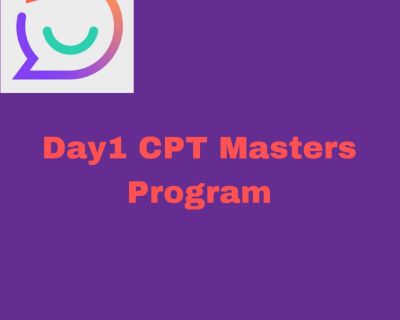Introduction
The International English Language Testing System (IELTS) Writing test is an essential component for individuals looking to study or work abroad. It assesses your ability to communicate effectively in written English. Adhering to the word count requirements is crucial for achieving a good score. In this article, we will explore the penalties for going under the word count and provide strategies to avoid them.
The IELTS Writing Test: An Overview
The IELTS Writing test consists of two tasks. Task 1 requires you to write a descriptive report based on visual information, such as charts, graphs, or diagrams. Task 2 is an essay where you express and support your opinion on a given topic. Both tasks have specific word count requirements, which are integral to the scoring process.
Word Count Essentials: Know the Requirements
It’s essential to familiarize yourself with the word count requirements for each task. For Task 1, you are expected to write at least 150 words, while for Task 2, the minimum word count is 250. Going below these limits can result in penalties, affecting your overall score.
To ensure you meet the word count, develop a strategy that works for you. Practice writing within time constraints, and aim to produce concise yet thorough responses. Avoid going off-topic or providing unnecessary details that do not contribute to the overall quality of your writing.
Consequences of Ignoring Word Limits
Ignoring the word limits can have significant consequences on your score. The examiner might penalize you for not demonstrating an appropriate level of English proficiency or for failing to meet the task requirements. Your response may be marked down due to lack of depth, incomplete explanations, or underdeveloped ideas.
To illustrate the impact of under-word responses, let’s consider a hypothetical scenario of two essays on the same topic. Essay A meets the minimum word count of 250, while Essay B falls short at 200 words. Despite having similar ideas, Essay A’s explanation is more comprehensive, allowing the candidate to showcase a deeper understanding. Consequently, Essay A is likely to receive a higher score than Essay B.
Understanding the Penalty System
The penalty system for under-word responses is designed to maintain fairness and uphold the established standards of the IELTS test. The severity of the penalty depends on the extent to which your response falls short of the word count.
Minor under-word violations, where the shortfall is minimal, usually result in a small deduction of marks. However, major under-word violations can significantly impact your score, as your response might be deemed incomplete or insufficient to meet the task requirements.
Strategies to Avoid the Under-Word Penalty
To avoid penalties for going under the word count, it is crucial to manage your time effectively during the test. Prioritize planning your response, ensuring you have a clear structure in mind before you begin writing. This will help you avoid deviating from the topic and enable you to expand your ideas more efficiently.
Improve your writing fluency by practicing timed writing exercises. Set a target word count for each practice session, gradually building up to the required word count. This will allow you to develop a natural flow and avoid running out of ideas before reaching your desired word count.
Analyzing and Expanding Ideas Effectively
When writing your response, pay attention to the development of ideas. Expand on your main points to reach the required word count. Use transitional phrases and appropriate examples to illustrate your arguments and make your writing more coherent and cohesive.
Remember, quality is just as important as quantity. Focus on providing well-developed ideas that address the task requirements effectively. Avoid repetitive sentences or excessive use of filler words, as they can dilute the quality of your response.
The Role of Practice Tests
Taking practice tests is an invaluable part of your preparation. Mock exams allow you to familiarize yourself with the test format and time constraints, aiding in managing the word count effectively. Evaluate your performance in each practice test and pay attention to whether you consistently meet the required word count.
Tips for Successful IELTS Writing
To maximize your IELTS Writing score, consider the following tips:
- Plan your response before writing to ensure a clear and organized structure.
- Use specific vocabulary and varied sentence structures to enhance your writing.
- Aim for a balance between providing sufficient content and meeting the word count.
- Pay attention to grammar, spelling, and punctuation to maintain clarity and coherence in your writing.
Common Mistakes and Misconceptions
Don’t fall for common misconceptions about the IELTS writing word count. Some test-takers believe that going significantly over the word count will guarantee a higher score. However, it is about quality rather than quantity. Focus on meeting the word count while delivering a well-developed response that addresses the task requirements effectively.
Time Management During the Test
Proper time management is key to meeting the word count while maintaining the overall quality of your response. Allocate your time wisely, ensuring you have enough time for planning, writing, and revising. Use time-saving tactics, such as setting a target word count for each section of your response, to stay on track during the exam.
Conclusion
Meeting the word count requirements in the IELTS Writing test is essential for achieving a favorable score. Understanding the penalties for going under the word count and employing effective strategies can help you avoid unnecessary score deductions. By practicing timed writing exercises, analyzing and expanding ideas, and managing your time wisely, you can confidently approach the test and maximize your chances of success.
Remember, preparation is key, and practice makes perfect. Utilize resources, such as mock exams and planning tools, to enhance your performance in the IELTS Writing test. Best of luck in your preparations, and don’t hesitate to reach out if you have any questions or require further assistance.
Be sure to follow our blog for more valuable insights and advice on IELTS Preparation & Studying Abroad. We are dedicated to supporting you in your journey towards success!

















